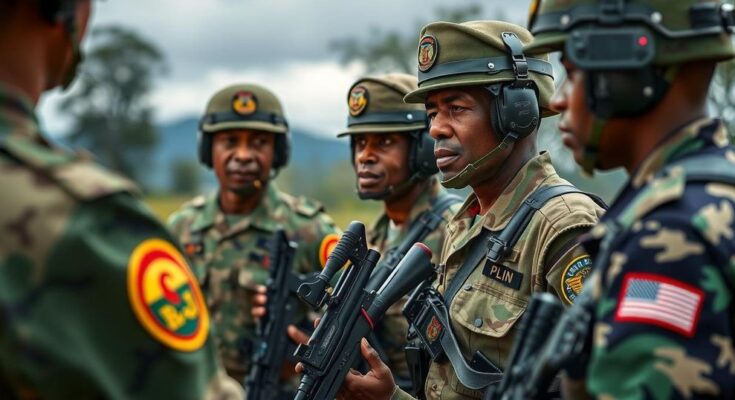Russia has sent up to 200 troops to Equatorial Guinea to train presidential guards, marking an expansion of its military influence in Africa. The instructors are reportedly engaged in training elite guards in Malabo and Bata, with the involvement of the paramilitary Corps Africa. The Equatorial Guinean leadership, facing human rights criticisms, seeks deeper military ties with Russia as it distances itself from traditional Western allies amidst rising geopolitical tensions.
Reportedly, Russia has dispatched between 100 and 200 military instructors to Equatorial Guinea to bolster the security of its presidency. This initiative is part of Russia’s broader strategy to enhance its influence in Africa, where it has previously sent mercenaries to assist military regimes in various regions. The instructors are currently training elite guards in the capital, Malabo, and the city of Bata, amidst ongoing reports of increased Russian military engagement in the country. President Teodoro Obiang Nguema Mbasogo, who has ruled since 1979, has sought assistance from Russia and Belarus for military and resource agreements, citing the need to strengthen national defense. Human rights concerns have persisted regarding the Equatorial Guinean administration, with critiques directed toward its record of arbitrary killings and torture, as noted in a U.S. government report.
The deployment of Russian military instructors to Equatorial Guinea is reflective of Russia’s expanding presence in Africa, as it seeks to establish closer ties with countries on the continent. In recent years, Russia has aimed to increase its influence through various means, including sending mercenaries to support quasi-military governments and combat insurgency. Equatorial Guinea, led by the longest-serving president in the world, Teodoro Obiang Nguema Mbasogo, has engaged in seeking military partnerships as it faces international scrutiny over its human rights record. The government’s attempts to forge military relationships and resource exploration agreements indicate a shift in its alliance dynamics, away from traditional Western partners amidst geopolitical tensions.
The reported arrival of Russian military instructors in Equatorial Guinea underscores the growing military cooperation between Moscow and Malabo, as the latter seeks to enhance its defense capabilities while navigating international criticism. The presence of these instructors is a strategic move by Russia to assert its influence in a region increasingly marked by shifts toward non-Western alliances. As the U.S. observes these developments, the implications for its historical interests in Equatorial Guinea and broader regional stability remain a pertinent concern.
Original Source: www.bbc.com




